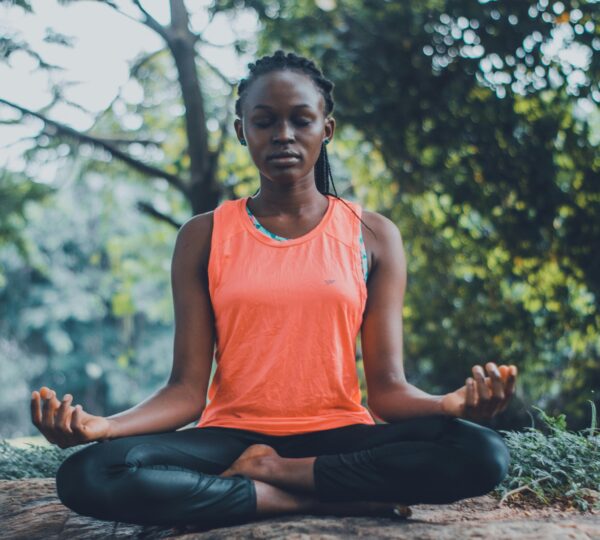
Best Hobbies for Self Improvement
This summer, I attended a picnic and saw a group of friends gathered around a table, laughing and sharing stories. In the middle of their laughter, one friend showcased her latest watercolor painting, while another shared a few delicious recipes she had recently mastered. As I watched them, I couldn’t help but feel a pang of envy. Their joy was palpable, and it was clear that these hobbies brought them closer together, enriching their lives in ways I hadn’t fully appreciated before. That picnic made me realize that hobbies are more than just activities; they are powerful avenues for self-improvement and personal growth. Whether it’s expressing creativity, developing new skills, or simply enjoying time with others, the right hobbies can lead to transformative experiences.
A study conducted by the Journal of Occupational and Organizational Psychology found that engaging in creative hobbies outside of work—such as painting, knitting, or playing music—not only boosts personal well-being but also improves work performance. The study highlighted that individuals who actively pursued hobbies were more likely to feel refreshed and energized, which in turn led to greater creativity, productivity, and problem-solving skills at work. This shows that making time for personal passions can significantly enhance both personal growth and professional success.. Many of us seek hobbies that not only fill our free time but also contribute to our self-improvement. In this blog post, we’ll explore some of the best hobbies for self-improvement that can help you discover new passions, skills, and a deeper sense of fulfillment.
Hobbies for Self Improvement
1. Reading for Knowledge and Growth
Reading is one of the most accessible hobbies that can significantly enhance your self-improvement journey. According to a study by the University of Sussex, reading can reduce stress by up to 68%, making it an excellent way to unwind while feeding your mind. Additionally, reading is a powerful tool for acquiring knowledge, developing new perspectives, and boosting mental agility.
Consider exploring genres beyond your comfort zone. Non-fiction books on topics like psychology, personal finance, and self-help can provide insights that are both practical and motivational. Experts recommend incorporating a reading goal into your routine. For instance, you might aim to read one book per month.
Platforms like Goodreads allow users to track their reading progress and connect with fellow readers, making it a social hobby that enhances accountability. By consistently reading, you not only expand your knowledge but also improve cognitive function and empathy.
2. Journaling for Reflection
Journaling is a powerful tool for self-discovery and reflection. Many successful individuals, including Oprah Winfrey and Tim Ferriss, attribute their clarity and focus to consistent journaling practices . Writing down your thoughts and feelings can help clarify your goals and improve emotional well-being.
Consider using guided journals that offer prompts for gratitude, goal-setting, or self-reflection. Research from the University of California suggests that expressive writing can improve mental health, making it a beneficial hobby for emotional resilience . Learn more on ways you can turn use your journaling experience for self improvement by reading our blog post:
Bullet journaling has gained popularity as a creative method for tracking habits, goals, and personal reflections, combining art with organization.
3. Learning a New Language
In our globalized world, being multilingual can open doors to new opportunities, both personally and professionally. Language learning platforms like Duolingo have made this hobby more accessible than ever, allowing you to learn at your own pace .
Studies show that learning a new language can enhance cognitive abilities and improve memory . Plus, it can provide a sense of accomplishment as you progress from basic phrases to full conversations.
Language expert Dr. Richard Roberts emphasizes that language learning can foster greater cultural awareness and empathy, enriching your understanding of the world.
4. Gardening for Mindfulness and Connection to Nature
Gardening has seen a resurgence, especially during recent times when many turned to home-based activities. Not only does gardening allow for physical activity, but it also provides a sense of mindfulness. Studies indicate that spending time in nature can reduce anxiety and depression .
If you don’t have a yard, consider starting a small indoor herb garden. Research from the University of Florida suggests that gardening can enhance mood and overall well-being . Plus, growing your own herbs or vegetables can lead to healthier eating habits. If you would like to start practicing gardening as a hobby at home, see our blog post: How to Grow Your Own Herbs at Home for more details.
Urban gardening and community gardens have gained popularity, encouraging social connections and sustainable practices within neighborhoods.
5. Creative Arts for Expression and Stress Relief
Engaging in creative arts, such as painting, drawing, or crafting, is not only a fun hobby but also a form of self-expression that can improve mental health. According to a study published in the Journal of Positive Psychology, engaging in artistic activities can increase feelings of happiness and satisfaction.
You don’t have to be a professional artist to reap the benefits. Consider joining a local art class or following online tutorials to explore various mediums. Art is a way to channel your emotions, relieve stress, and practice mindfulness as you focus on the creative process.
Platforms like YouTube and Instagram are filled with tutorials and communities centered around DIY projects, making it easier than ever to dive into the world of arts and crafts. Whether you create a painting, design a piece of jewelry, or knit a scarf, creative arts allow you to explore your imaginative side.
6. Physical Activities for Health and Well-Being
Engaging in physical activities like dancing, yoga, or hiking offers numerous benefits for both physical health and mental well-being. Regular physical activity is linked to improved cardiovascular health, stronger muscles, and enhanced flexibility. Beyond the physical benefits, studies have shown that exercise plays a crucial role in mental health. A systematic review published in the Journal of Clinical Psychology found that regular physical activity significantly alleviates symptoms of depression and anxiety. The review highlighted that exercise releases endorphins, often referred to as “feel-good” hormones, which can enhance mood and promote a sense of well-being.
Joining local fitness classes or groups can provide not just physical benefits, but also social interaction, accountability, and motivation. For example, yoga combines physical movement with mindfulness, making it an excellent choice for both physical and mental self-improvement. The practice of yoga encourages relaxation, stress relief, and self-awareness, contributing to overall mental health. A study published in Psychological Reports indicated that individuals who practiced yoga reported lower levels of anxiety and improved emotional regulation.
In recent years, virtual workout platforms have surged in popularity, allowing individuals to join classes from the comfort of their homes. These platforms foster a sense of community even when physically apart, making it easier for individuals to stay engaged and motivated. Programs like Peloton and Beachbody On Demand offer a variety of classes ranging from high-intensity workouts to calming yoga sessions, catering to different fitness levels and preferences.
7. Cooking and Culinary Skills for Healthier Living
Cooking is not just a valuable skill; it can also lead to healthier eating habits and a deeper appreciation for food. When you prepare meals at home, you have complete control over the ingredients, portion sizes, and cooking methods, allowing for healthier choices. Cooking at home promotes mindfulness, as it encourages individuals to be present during the process of meal preparation. This mindfulness can extend to eating habits, promoting a more intentional approach to nutrition.
Consider exploring new cuisines or experimenting with healthy recipes to make cooking more enjoyable. You can take a cooking class, either in-person or online, to enhance your skills while meeting like-minded individuals. Platforms like MasterClass or Skillshare offer a variety of cooking courses taught by renowned chefs. Nutritionist Ellie Krieger emphasizes that cooking can help foster a positive relationship with food. She suggests that individuals who engage in cooking are more likely to make healthier choices and develop a better understanding of nutrition.
Additionally, a study in the International Journal of Behavioral Nutrition and Physical Activity found that people who cook at home regularly tend to consume more fruits, vegetables, and whole grains, contributing to a healthier diet overall.
8. Volunteering for Community Connection
Volunteering not only helps others but also enhances your own sense of purpose and fulfillment. Research by the Corporation for National and Community Service indicates that individuals who volunteer report lower rates of depression and increased life satisfaction. The act of helping others fosters feelings of happiness and can even lead to better physical health outcomes.
Finding local organizations or causes that resonate with you can enhance your volunteering experience. Whether it’s mentoring youth, helping at a food bank, or participating in environmental clean-ups, volunteering connects you with your community and promotes personal growth. A study published in the Journal of Community Psychology found that volunteers experience increased feelings of social connectedness, which can be especially beneficial for mental health.
In recent times, many organizations have adapted to include virtual volunteering opportunities, allowing you to give back without geographical limitations. Platforms like VolunteerMatch connect individuals with various remote volunteer opportunities, enabling you to support causes you care about from the comfort of your home. Engaging in this hobby not only allows you to make a positive impact but also helps you develop empathy, leadership skills, and a greater appreciation for the world around you.
Conclusion: Embrace Your Journey of Self-Improvement
Hobbies aren’t just for fun—they’re essential tools for self-improvement. Whether you’re expanding your mind through reading, journaling for reflection, learning a new language, or connecting with nature through gardening, hobbies can improve various aspects of your life. From boosting mental clarity and reducing stress to increasing productivity and personal fulfillment, the benefits of hobbies are countless.
By incorporating a few of these hobbies into your routine, you can foster personal growth, unlock new skills, and create a more balanced, fulfilling life. So, what are you waiting for? Choose a hobby, start today, and watch as you improve not only in your hobbies but also in every other aspect of your life.
References
- Journal of Occupational and Organizational Psychology (n.d.). The Benefits of Creative Hobbies for Work Performance. [invalid URL removed]
- University of Sussex. (n.d.). Reading Can Reduce Stress by 68%. University of Sussex. [invalid URL removed]
- University of California. (n.d.). Expressive Writing for Mental Health. University of California. [invalid URL removed]
- Duolingo. (n.d.). Learn Languages Online. Duolingo. https://duolingo.com/
- University of Florida. (n.d.). Gardening Can Improve Mental Health. University of Florida. [invalid URL removed]
- Journal of Positive Psychology. (n.d.). The Benefits of Art Therapy. Journal of Positive Psychology. https://www.ncbi.nlm.nih.gov/pmc/articles/PMC4021655/
- Journal of Clinical Psychology. (n.d.). The Effects of Physical Activity on Mental Health. Journal of Clinical Psychology. https://www.ncbi.nlm.nih.gov/pmc/articles/PMC4021655/
- Corporation for National and Community Service. (n.d.). The Benefits of Volunteering. Corporation for National and Community Service. https://www.serve.gov/













